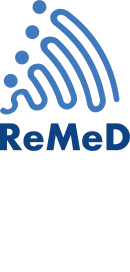The third Work Package (WP3) studies the structural conditions in which journalistic media and alternative media operate. WP3 has two objectives. Objective 1 is to analyze the potential influence of technological innovations and the changed regulatory framework on the media, journalists and new content providers at the EU and the national level. Objective 2 is to study the business models that allow companies to generate quality content and be independent. WP3 relies on a triangulation of quantitative and qualitative methods to achieve its objectives.
To achieve objective 1, we first (1) analyze the media laws and regulations between 2015 and 2025 and research (2) the supply side and (3) the demand side. The supply side analysis studies the competition between legacy media brands, new digital-born outlets, digital content platforms (aka “social media”) and alternative content providers. The demand side considers how media consumption and the new preferences and routines of audiences may influence the emergence of new editorial formats and political trust. It also assesses market concentration and media mergers and their potential effects on pluralism and diversity. To this end, we will study the evolution of market shares —in terms of audience and advertising revenues— and the transparency of these data. Further, we assess the potential risk in the countries under analysis where large international platforms have a dominant position in the advertising sector.
To achieve objective 2, we conduct a desk research of various successful business models of both journalistic and alternative media. We provide an overview of sustainable business models that guarantee the professionalism and editorial strength of content providers. Further, we interview media executives and practitioners to understand their strategies and the challenges they face to ensure independence and contribute to reinvigorating democracy.
WP3 will produce the following outputs. First, we will issue a research publication and hold an international conference on the role of technology in shaping changes in the relations between the media and democracy. Second, we will publish a research publication on the function of private and public ownership and of market concentration in traditional and new media content provider markets. Third, country reports will inform about the state of the media in each analyzed country and policy recommendations will be issued, aimed at increasing media transparency and accountability in the new digital environment to reinvigorate democracy.
